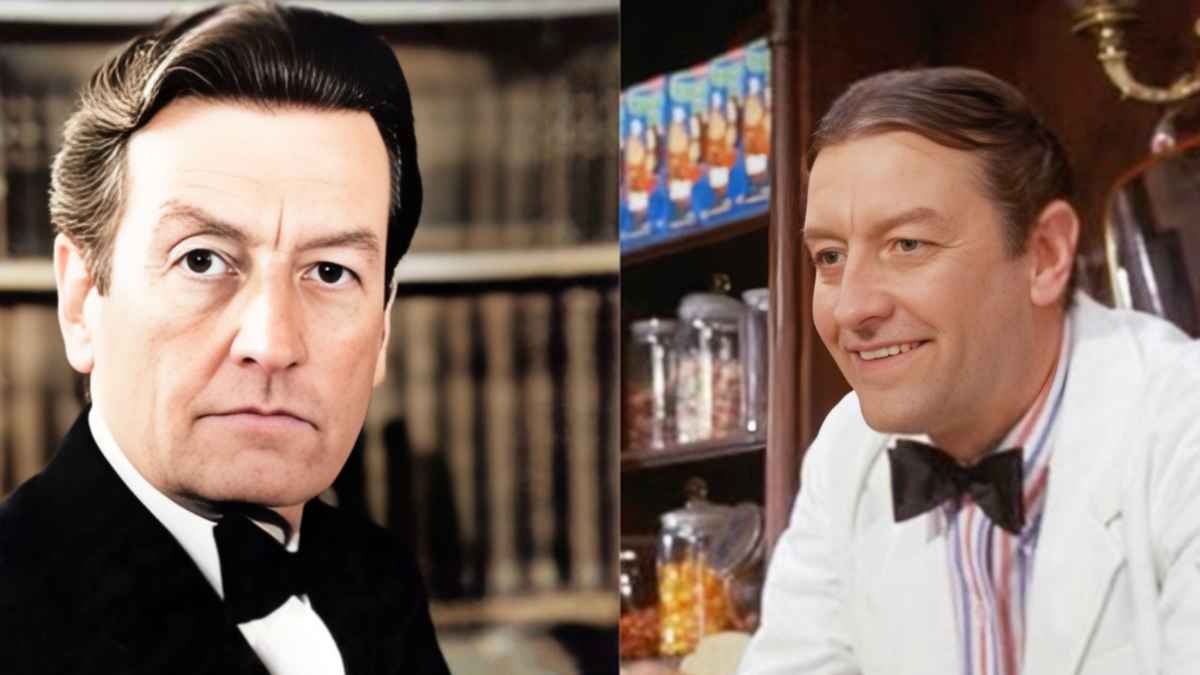Aubrey Woods: The Unsung Talent Behind British Stage and Screen
Discover the Life, Legacy, and Lasting Voice of a Remarkable English Actor

When reflecting on the great contributors to British entertainment, Aubrey Woods may not be the first name that comes to mind, but he should be. Known for his subtle brilliance, captivating voice, and versatile presence across film, stage, radio, and television, Woods left a quiet yet undeniable impact on the industry. His career spanned more than five decades, and while his role in Willy Wonka & the Chocolate Factory remains iconic, it only scratches the surface of his contributions.
Quick Bio of Aubrey Woods
| Full Name | Aubrey Harold Woods |
|---|---|
| Date of Birth | April 9, 1928 |
| Place of Birth | Edmonton, Middlesex, England |
| Date of Death | May 7, 2013 |
| Age at Death | 85 years old |
| Nationality | British |
| Profession | Actor, Singer, Voice Artist |
| Height | Approx. 5 feet 10 inches (178 cm) |
| Education | Royal Academy of Dramatic Art (RADA) |
| Spouse | Gaynor Woods (married 1952–2013) |
| Famous Role | Candy Man in Willy Wonka & the Chocolate Factory |
| Net Worth | Estimated $1 – $2 million (at time of death) |
| Years Active | 1947 – 1996 |
Early Life: Foundations of a Performer
Born on April 9, 1928, in Edmonton, Middlesex, Aubrey Harold Woods displayed an early passion for the performing arts. He was raised in Palmers Green, a culturally rich area that nurtured his artistic interests. His talent and dedication led to a Leverhulme scholarship to the Royal Academy of Dramatic Art (RADA) in 1945, where he trained among future stars.
It was at RADA that he met his future wife, Gaynor, who would become his lifelong partner both personally and professionally. From the outset, Woods was grounded, focused, and deeply committed to mastering his craft.
Film Debut: A Promising Beginning
Woods’ screen journey began with a notable debut in 1947’s The Life and Adventures of Nicholas Nickleby, where he portrayed the gentle and tragic Smike. At just 19 years old, his nuanced performance revealed emotional maturity beyond his years. This early success cemented his place in the British acting scene.
Woods never chased stardom, preferring to let his work speak for itself. His quiet strength lay in his authenticity—an actor who embodied characters with depth and sincerity.
Theatre Brilliance: Mastering the Stage
Aubrey Woods truly flourished in the theatre, where his commanding stage presence and musical talents found a natural home. One of his most celebrated roles was Fagin in Lionel Bart’s Oliver! during the 1960s, a part that demanded charisma, complexity, and vocal prowess.
He also shone in productions such as:
Cardinal Richelieu in The Four Musketeers
Jacob and Potiphar in Joseph and the Amazing Technicolor Dreamcoat at the London Palladium
These roles demonstrated his remarkable ability to balance drama and humor, adapting seamlessly to the demands of musical theatre.
A Recognizable Voice: Radio and Narration
Woods’ rich, articulate voice became his trademark. His radio work was as prolific as his on-stage career, earning him respect for both dramatic and narrative performances.
He was a key voice in Douglas Adams’ The Hitchhiker’s Guide to the Galaxy radio series, captivating listeners with his distinctive tone. He also adapted E.F. Benson’s Secret Lives for radio and served as Vice President of the E.F. Benson Society, reflecting his passion for literature and storytelling.
His voice wasn’t just heard—it was remembered, as a source of comfort, intelligence, and elegance in British broadcasting.
Iconic Role: “The Candy Man” in Willy Wonka
While Woods embraced a wide range of roles, none left as universal a legacy as his portrayal of the candy shop owner in Willy Wonka & the Chocolate Factory (1971). In this role, he performed the now-famous song “The Candy Man”, a moment filled with warmth, charm, and whimsy.
Despite appearing in only one scene, his performance became one of the film’s emotional highlights. The song, made globally popular later by Sammy Davis Jr., remains most affectionately tied to Woods’ original on-screen rendition.
It was a shining example of how a small role, done with excellence, can become timeless.
Television Contributions: A Reliable and Impactful Actor
Throughout the 1970s and 1980s, Aubrey Woods remained a familiar face on British television. His role as The Controller in the 1972 Doctor Who episode “Day of the Daleks” showcased his range, playing a conflicted character torn between obedience and conscience.
Other memorable appearances include:
Blake’s 7
Ever Decreasing Circles
Auf Wiedersehen, Pet
Woods consistently delivered thoughtful, layered performances, often enriching supporting roles with unique emotional depth. He was a craftsman of subtlety—never overpowering, always enhancing.
More Read: John Paul Sarkisian: The Troubled Father Behind Cher’s Rise to Stardom
Character and Philosophy: The Man Behind the Curtain
Aubrey Woods was known for his humility and quiet confidence. He believed an actor’s role was to serve the story, not themselves. This mindset earned him great respect among peers and directors alike.
Offstage, Woods was a private man. He enjoyed reading, music, and intellectual pursuits. His long-lasting marriage to Gaynor reflected a stable and supportive personal life, which grounded his professional success.
Those who worked with him described him as a consummate professional—reliable, thoughtful, and always prepared. His dedication to his roles, no matter how large or small, exemplified a work ethic rooted in respect for the art form.
The Final Act: A Life Remembered
Aubrey Woods passed away on May 7, 2013, in Barrow-in-Furness, Cumbria, at the age of 85. His passing marked the end of an era for those who appreciated the quieter strengths in acting.
Though his death received modest media coverage, those who knew his work understood the depth of his contributions. His legacy is not measured in celebrity headlines but in the enduring quality of his performances.
Why Aubrey Woods Still Matters
In an industry often drawn to spectacle and fame, Aubrey Woods stands out as a beacon of understated brilliance. He reminds us that not all impactful performances come from center stage or blockbuster headlines.
His career spanned film, television, theatre, and radio—each with distinction
His voice became a staple in British cultural memory
His performances consistently elevated the material
Woods embodies the ideal that true talent is defined by dedication, humility, and consistency, not by awards or popularity alone.
Conclusion
Aubrey Woods was more than a character actor—he was a craftsman of storytelling. His performances, from the musical charm of “The Candy Man” to the gripping intensity in Doctor Who, serve as lasting reminders of what it means to commit fully to one’s art.
He may not be a household name, but his work resonates with those who value quality, depth, and authenticity in performance. He leaves behind a quiet legacy—one built on substance over spotlight.
Let Aubrey Woods’ story inspire your appreciation for the unsung heroes of entertainment.



